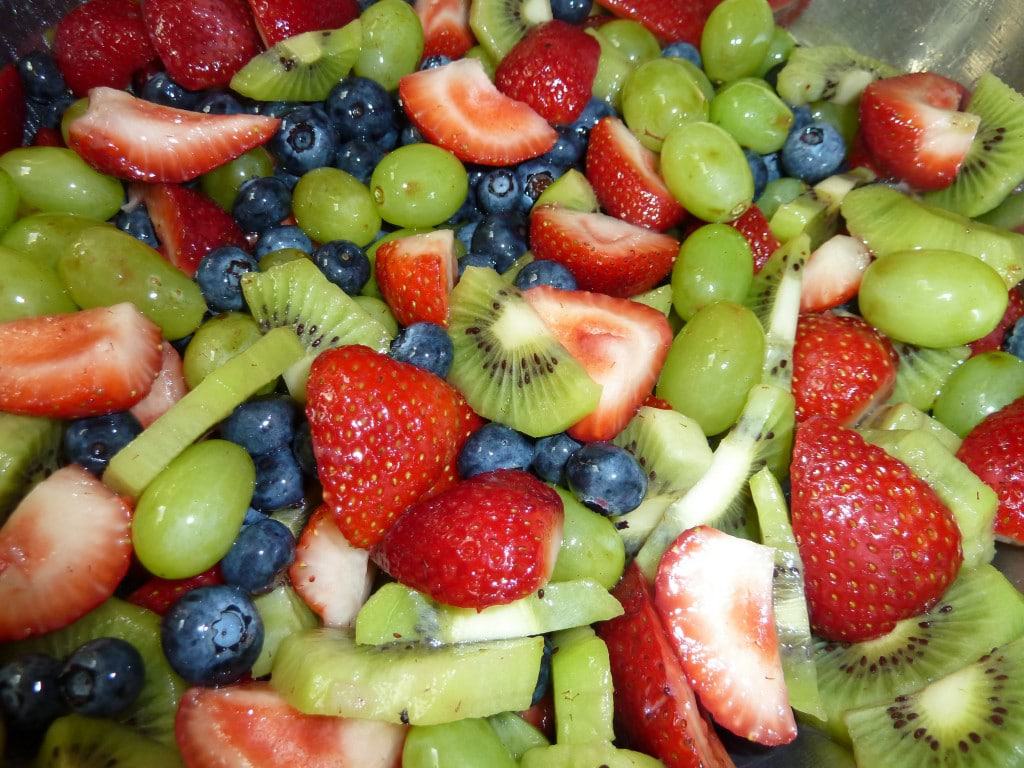- Vitamin K was discovered by Henrik Dam (Denmark) in 1929.
- It is a Fat-soluble vitamin.
- Vitamin K includes two natural vitamers: vitamin K1 and vitamin K2.
- Vitamin K1 is synthesized and stored in plants.
- Animals can convert Vitamin K1 into Vitamin K2.
- Vitamin K2 has several subtypes, which is the main storage form in Animals.
- Menaquinone-7 (MK7) is one of the subtype of Vitamin K2.
- MK7 can reduce the risk of bone fractures and cardiovascular disorders.
- MK7 can't produced by human tissues, but it can produced by E-coli bacteria in the Colon from Vitamin K1.

Research shows that the freezing and storing of vegetables and fruits and the heating of these foods are practices that do not cause excessive loss of vitamin K.
Vitamin K regulates Blood Clotting, prevents Osteoporosis, reduces Excessive Menstrual flow, reduce Internal Bleeding, reduces Menstrual Pain, good for Pregnant women who Suffers Vomiting and Nausea, prevents Hemorrhage in Babies, prevents Biliary Obtrusion,correct Digestive and Immune system, regulates Blood Sugar, increases the Flow of Urine,enhances the functioning of Liver, reduces Fracture, Maintains Strong Bone in Elders etc.
Amounts per Day
Males and females, 0-6 months: 2 micrograms
Males and females, 7-12 months: 2.5 micrograms
Males and females, 1-3 years: 30 micrograms
Males and females, 4-8 years: 55 micrograms
Males and females, 9-13 years: 60 micrograms
Males and females, 14-18 years: 75 micrograms
Males, 19 years and older: 120 micrograms
Females, 19 years and older: 90 micrograms
Pregnant or lactating females, 18 years and younger: 75 micrograms
Pregnant or lactating females, 19 years and older: 90 micrograms
Males and females, 7-12 months: 2.5 micrograms
Males and females, 1-3 years: 30 micrograms
Males and females, 4-8 years: 55 micrograms
Males and females, 9-13 years: 60 micrograms
Males and females, 14-18 years: 75 micrograms
Males, 19 years and older: 120 micrograms
Females, 19 years and older: 90 micrograms
Pregnant or lactating females, 18 years and younger: 75 micrograms
Pregnant or lactating females, 19 years and older: 90 micrograms
Vitamin K Deficiencies
Bleeding including heavy menstrual bleeding, gum bleeding, bleeding within the digestive tract, nose bleeding, easy bruising, blood in the urine, prolonged clotting times, hemorrhaging, and anemia.
Loss of bone (osteopenia), decrease in bone mineral density (osteoporosis), and fractures - including common age-related fractures like that of the hips.
Excess Calcium deposits in Soft Tissues (It may lead to Hardening of Arteries etc.)
Vitamin K Toxicities
There is no adverse effects have been reported for higher levels of Vitamin K intake from Food. But a synthetic form of Vitamin K, called Menadione (Vitamin K3) can cause health risks. This risk involves excessive oxidative stress and resultant damage to a variety of cell types, including kidney and liver cells.
Good Vegetable Sources
- Fruits: Avocado, Blackberry, Blueberries, Cranberries, Grapes, Kiwi Fruit, Longans, Mango, Mulberries, Pear, Plum, Pomegranate, Raspberries, Tomato etc.
- Vegetables: Alfalfa Seed, Artichoke, Asparagus, Broccoli, Brussels Sprouts, Cabbage, Carrots, Cauliflower, Cucumber, Kale, Leeks etc.
- Nuts & Grains: Cashews, Chestnuts, Fiberts, Pine nuts, Rye etc.
- Legumes: Edamame, Kidney Beans, Spilt Peas etc.

No comments:
Post a Comment